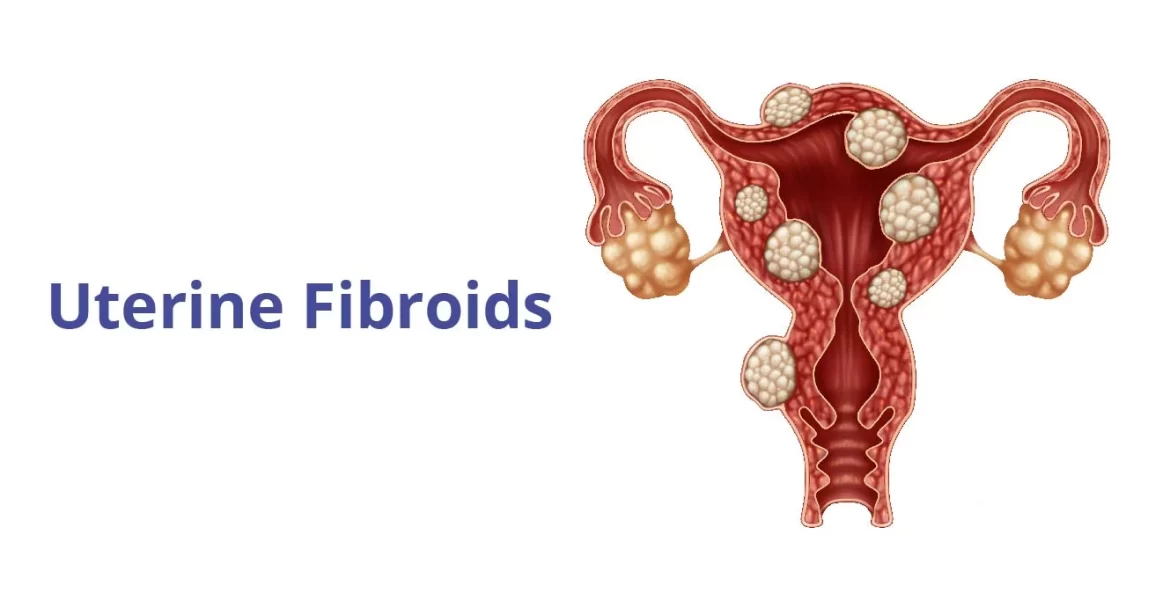Uterine fibroids, also known as leiomyomas or myomas, are noncancerous growths of the uterus that often appear during childbearing years. These growths are made up of muscle cells and other tissues that form a mass or tumor within or on the walls of the uterus. While the exact cause of uterine fibroids is not completely understood, several factors may contribute to their development.
Causes of Uterine Fibroids:
Hormones:
Estrogen and progesterone, two hormones that regulate the menstrual cycle, appear to stimulate the development of uterine fibroids. Fibroids tend to enlarge during periods of hormonal fluctuation, such as during pregnancy or perimenopause when hormone levels are elevated.
Genetic Predisposition:
A family history of fibroids may increase the risk of developing them. Specific genetic mutations may also play a role in their development.
Race and Ethnicity:
Uterine fibroids are more common in women of African descent compared to women of other races. They also tend to develop at a younger age and are often more severe in African American women.
Other Growth Factors:
Other growth factors, such as insulin-like growth factor, may be involved in the development of fibroids.
Symptoms of Uterine Fibroids:
Menstrual Changes:
Heavier menstrual bleeding than usual, periods that last longer than a week, and irregular menstrual cycles are common symptoms.
Pelvic Pain and Pressure:
Fibroids can cause a feeling of fullness or pressure in the lower abdomen or pelvis. This can lead to pelvic pain or discomfort.
Frequent Urination:
Large fibroids can press against the bladder, causing a frequent need to urinate.
Pelvic Pain During Intercourse:
Fibroids may cause pain or discomfort during sexual intercourse.
Backache or Leg Pains:
Fibroids can press on nerves in the back and cause back pain or leg pain.
Constipation or Difficulty with Bowel Movements:
Fibroids that press on the rectum may cause constipation or difficulty with bowel movements.
Enlarged Abdomen or Uterus:
In some cases, large fibroids can cause the uterus to become enlarged, leading to an enlarged abdomen or a feeling of fullness.
Reproductive Issues:
Depending on their size and location, fibroids can cause infertility or recurrent pregnancy loss. They may also contribute to complications during pregnancy and labor.
Diagnosis and Treatment:
Diagnosis:
A gynecologist in Lahore may diagnose uterine fibroids based on symptoms, a pelvic exam, or imaging studies such as ultrasound or MRI.
Watchful Waiting:
In some cases, if the fibroids are small and not causing symptoms, a healthcare provider may recommend watchful waiting without immediate intervention.
Medications:
Hormonal medications, such as birth control pills or hormonal IUDs, may help manage symptoms like heavy bleeding and pelvic pain.
Non-Surgical Procedures:
Procedures like uterine artery embolization (UAE) or focused ultrasound surgery (FUS) can shrink or destroy fibroids without surgery.
Surgical Options:
Surgical interventions, including myomectomy (removing individual fibroids) or hysterectomy (removing the entire uterus), may be recommended in certain cases, especially if the fibroids are causing severe symptoms or fertility issues.
It’s important for women experiencing symptoms suggestive of uterine fibroids to consult with a best gynecologist in Karachi for proper evaluation, diagnosis, and management. The choice of treatment depends on factors such as the size and location of the fibroids, the severity of symptoms, and the woman’s reproductive goals.


